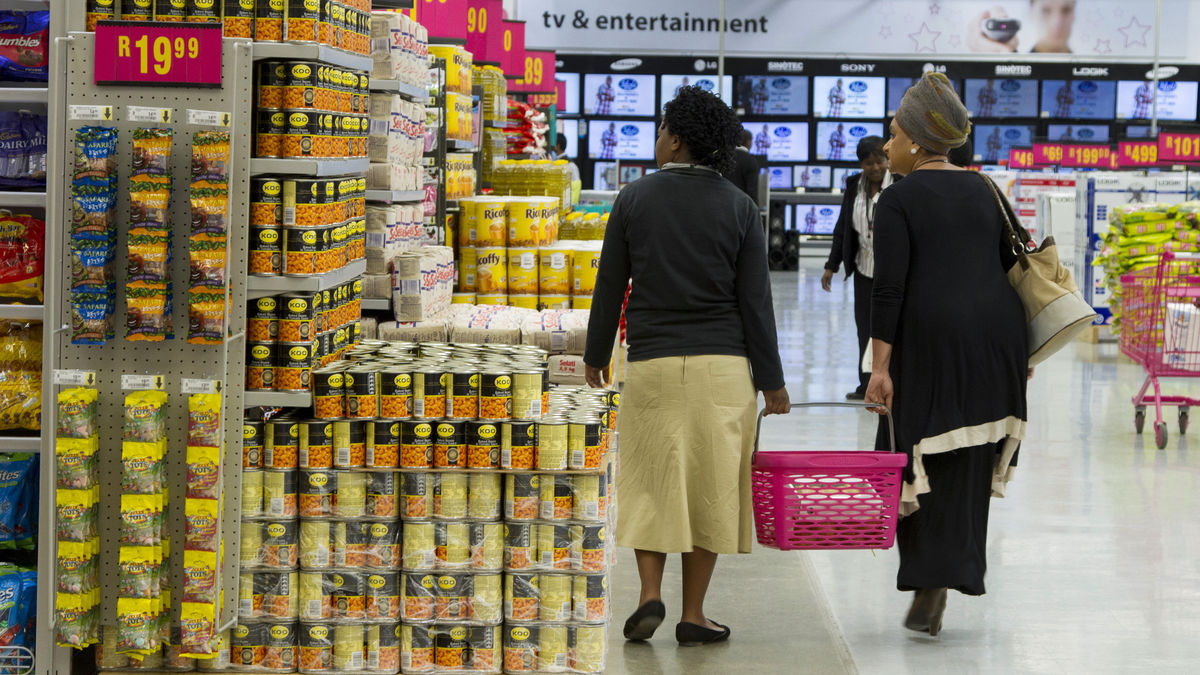As South African supermarket chains seek to defend their business from the encroaching heft of Wal-Mart Stores Inc. (WMT), the U.S. retailer is getting mired in a food fight at the mall.
Game, a chain owned by Wal-Mart that’s known for household goods ranging from soap to electronics, is encountering opposition as it adds fresh produce to the mix. Rivals with stores in South African shopping centers that have Game outlets have sued to enforce lease clauses barring new food retailers.
At CapeGate Mall just northeast of Cape Town, Game’s food section has been cordoned off twice since the store introduced fresh produce in September 2013 after legal maneuvering by Shoprite Holdings Ltd. (SHP) and Pick n Pay Stores Ltd.
“I was very disappointed when Game stopped selling fresh meat and vegetables,” said Rebecca Benjamin, 39, who works at a nail salon at CapeGate and is a regular at the store. “I always look in the newspapers for the Game specials.”
The wrangling threatens to stifle Wal-Mart’s expansion in a country where rising incomes present a “tremendous opportunity,” Wal-Mart Chief Executive Officer Doug McMillon told investors in 2010, when he headed the company’s international business. Wal-Mart three years ago bought a controlling stake in Johannesburg-based Massmart Holdings Ltd. (MSM), which owns Game and 10 other chains.

Customers walk past a display of canned foods inside a Game supermarket, part of… Read More
“The behavior by the retailers just feels intuitively anti-competitive,” said Massmart CEO Guy Hayward. “It’s going to reduce choice for customers.”
Japan, Russia
While Wal-Mart generatesalmost $138 billion in annual sales from 26 countries outside the U.S., it has struggled in some markets. The company shuttered its German stores in 2006, and it has yet to find a suitable local partner in Russia. Last year, Wal-Mart broke up with India’s Bharti Enterprises and only has a wholesale business in that country. In Japan, it has said it will close 30 of its 373 outlets.
The tussle is compounding Wal-Mart’s difficulties in South Africa asconsumer spending and economic growth slow. Massmart’s first-half profit fell by 26 percent to 364 million rand ($34.3 million), though fresh food has been a bright spot. Game South Africa’s comparable store food-sales growth was about 20 percent in the six months through June, versus a 0.4 percent increase in total same-store revenue.
At CapeGate, Game’s food section was shuttered from October to March after Shoprite got a court order that barred fresh food sales. On Sept. 29 it closed again when Pick n Pay secured a similar decision. It reopened on Oct. 13 after Massmart appealed to South Africa’sSupreme Court, which is still considering the Pick n Pay case.
Game has added fresh produce in about half of its 110 stores, and plans to introduce it in most of the rest. Legal battles have prevented the retailer from opening such sections in two other malls.
Street Fight
The fight over exclusivity clauses “will certainly stunt Massmart’s growth,” said Alec Abraham, an analyst at Sasfin Securities in Johannesburg. “With consumer spending under pressure, you need the footfall that fresh food brings.”
Spar Group Ltd. (SPP) has also sued over a lease at a mall with a Game outlet in KwaZulu-Natal province. Pick n Pay says it has sent letters warning landlords to honor exclusivity clauses at about a dozen malls, and it has filed lawsuits in two of them.
“We are not crossing the street for a fight,” said Pick n Pay Chief Executive Officer Richard Brasher. “We’ve just reminded our landlords of the agreements that we have.”
Damping Effects
Massmart lodged a complaint on Oct. 31 with South Africa’s market regulator against Pick n Pay, Shoprite and Spar to ban lease exclusivity. While no Wal-Mart-owned store in South Africa uses such clauses, Wal-Mart spokeswoman Jo Newbould declined to specify whether it benefits from them in other countries when contacted by Bloomberg News.
Michael Spivey, Massmart’s head legal counsel, said he is prepared “to fight as long as it takes,” to get the clauses overturned. “Wal-Mart did not see these lease exclusivities coming,” he said. “We believed that once the merger was complete we would compete fairly, openly and aggressively.”
The South African Property Owners Association, which represents commercial and industrial landlords, has asked anti-trust authorities to bar exclusivity provisions. The Competition Commission has said it’s “concerned about the potential damping effects of exclusive leases on competition,” but that it hasn’t found sufficient evidence of that to pursue any cases.
Shoprite Chief Executive Officer Whitey Basson says that while the clauses are less important at larger shopping centers, in smaller malls they help ensure sufficient traffic to generate robust sales.
“There’s a reason for that exclusivity, because otherwise we won’t go into some of the shopping centers with developers and the centers won’t take off,” he said at Shoprite headquarters, across the highway from CapeGate. “Somebody has to take the risk.”
FRENCH VERSION



